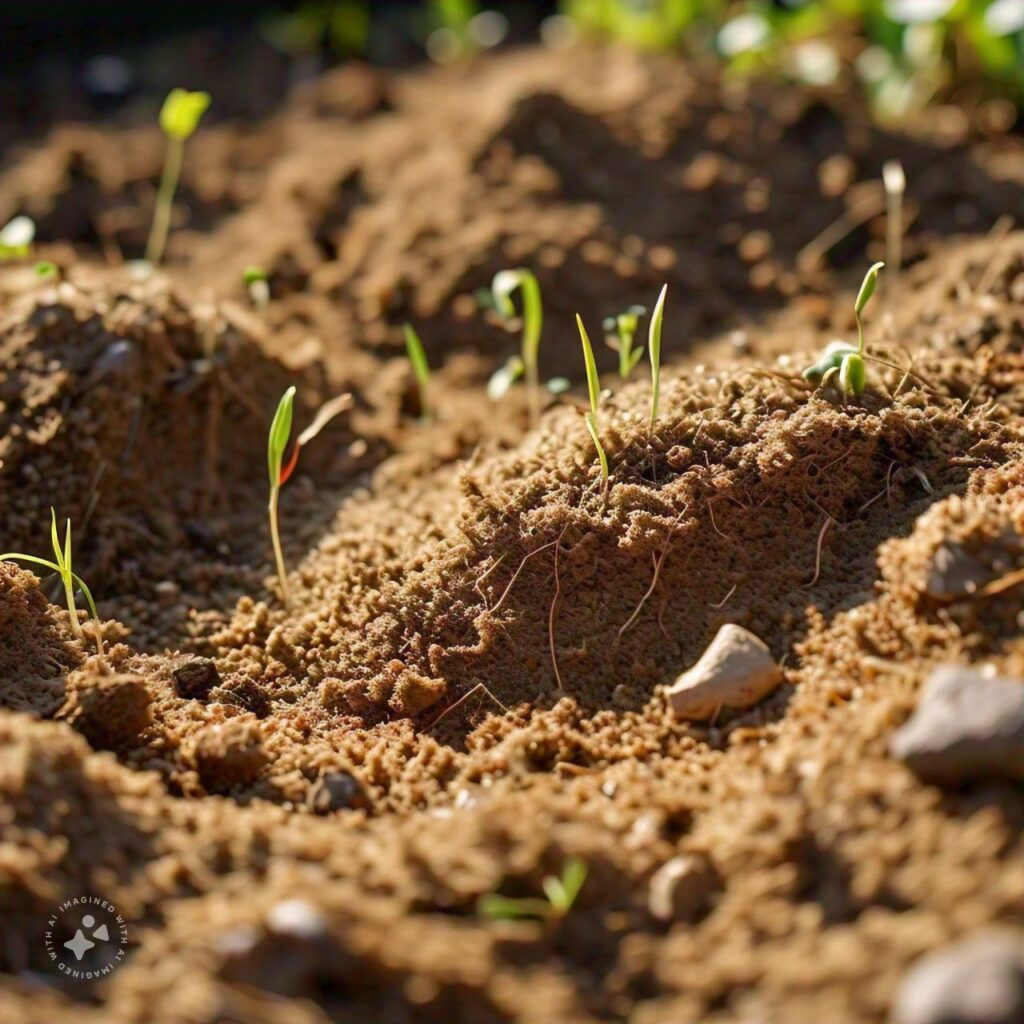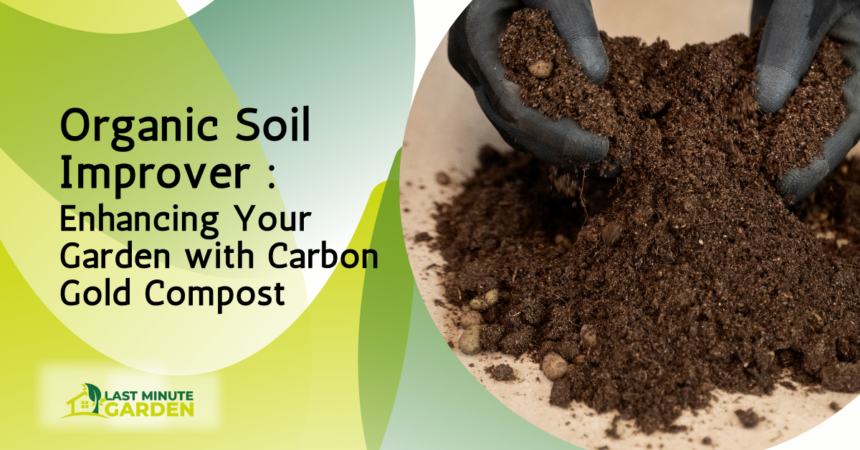Ever noticed why some gardens look amazing while others don’t? It could be the soil’s lack of organic matter.
In southern England, most soils have less than 2% organic matter. But, for healthy plants, you should aim for 3-6%.
So, what’s the best way to get there?
In this post, we shall dive into the benefits of Carbon Gold Compost, a powerful organic soil improver. We’ll explore how this soil food works, its unique ingredients, and the science behind its effectiveness. You’ll also learn practical tips on how to incorporate it into your gardening routine.
Let’s get started!
What is a Soil Improver?
A soil improver is a special material added to soil to enrich it. It helps with the physical, chemical, and biological aspects of soil. The best soil improvers contain organic compost.
This constituent is essential for healthy soil. It comes from broken-down plants and animals. It brings many benefits to soil.
It improves soil structure by holding particles together, makes soil more porous and improves aeration. It also helps keep water in the soil and provides nutrients for plants.
Benefits of Using a Soil Improver
Adding a soil improver to your existing soil has many benefits.
Some of these advantages include:
- Better crop yield
- Better resistant to pests and diseases in a diverse soil
- Soil holds water better, so plants need less water
- Better retention of nutrients in the soil, so plants always have what they need.

What is carbon-gold compost?
Carbon Gold Compost is a soil improver with a unique blend of organic materials enriched with biochar, a form of charcoal known for its ability to promote healthy plant growth.
Biochar increases the soil’s water retention and nutrient-holding capacity while promoting the growth of beneficial microbes.
It also has earth foods like worm castings and seaweed. Worm castings are full of good microbes and nutrients from vermicomposting. Seaweed adds trace minerals and stuff that helps plants grow strong and healthy.
This combination results in healthier, more fertile soil that can support robust plant growth.
Let’s delve deep into one of the supercomponents of this enhanced soil improver, biochar.
Understanding Biochar
Adding biochar to your garden helps with carbon sequestration. This is key to fighting climate change. Biochar also makes soil better by improving its structure, how well it holds water, and how it retains nutrients.
Below are some added benefits:
- Biochar helps the soil hold more water, which is great for dry soils like sandy ones.
- It makes garden soil healthier by making it more fertile and improving its structure. It also helps beneficial bacteria grow and lowers soil acidity.
- Studies show that biochar makes plants healthier. It helps them grow deeper roots, get better nutrients, and fight diseases. This is good for plants like tomatoes, peppers, strawberries, and asparagus.
- Biochar helps store carbon dioxide in soil for thousands of years. This makes soil better and reduces harmful gases in the air.
Advantages of Carbon-Gold Compost
Carbon Gold Compost is certified by the Soil Association. This means it’s top quality, eco-friendly, and follows strict organic rules.
- Improved Soil Structure: The biochar in Carbon Gold Compost helps to create a well-aerated soil structure, preventing compaction and allowing roots to penetrate easily.
- Enhanced Nutrient Availability: The organic matter and biochar work together to hold onto nutrients, making them readily available for plant uptake.
- Increased Water Retention: Biochar’s porous nature allows it to hold water, reducing the need for frequent watering and helping plants survive dry spells.
- Support for Beneficial Microbes: Carbon Gold Compost fosters a thriving microbial community, essential for nutrient cycling and plant health.
- Sustainable Gardening: Using Carbon Gold Compost not only benefits your garden but also contributes to environmental sustainability by sequestering carbon in the soil.
Carbon-gold compost is especially good for improving certain soil conditions. Below are some specifics:
Soil Improver for Diverse Growing Conditions
Adding it to your garden is good for all plants. It helps them stay healthy and strong.
Clay Soil
Heavy clay soil can be tough for gardeners because it doesn’t drain well and doesn’t get enough air. Carbon gold’s unique properties can fix this by making the soil more open and better at soaking up water and improving soil fertility. This means your plants will grow better, even in hard clay.
Sandy Soil

Sandy soils often lose water and nutrients quickly. Carbon-gold Gold Compost can solve this by adding more organic stuff to the soil. This helps the soil retain moisture and nutrients better. So, your plants will have what they need to do well.
How To Incorporate Carbon-Gold Compost Into Your Garden
Application Methods
When starting new plants, mix 10% compost with your soil. This mix gives your seedlings and young plants the right amount of nutrients and organic matter. It helps them grow strong.
For garden beds you’ve had for a while, add 1 kg (2L) of compost per square meter. Dig it into the top 20cm of soil. This makes your soil richer and helps your plants stay healthy.
You can also put a bit of compost in the hole when you plant new plants. This gives your plants a direct boost of nutrients right where they need it. It helps them get off to a great start.
In a test by Vitacress Tomatoes, using Carbon Gold Soil Improver in sandy soil made a big difference. By week 24, they got 7% more tomatoes than without it. That’s 0.9kg per m2 and 2,600kg of Piccolo Cherry tomatoes more.
Conclusion
Carbon Gold Compost is a top-notch soil improver that can change your garden for the better. Adding this soil improver to your garden brings many benefits. These include better soil structure, more nutrients, and healthier plants. It also makes your garden more sustainable and eco-friendly.
Using organic matter and sustainable gardening methods can make your garden a lush, eco-friendly place.
With Carbon Gold Compost by your side, you’re on your way to a garden that’s healthy, productive, and looks great.





